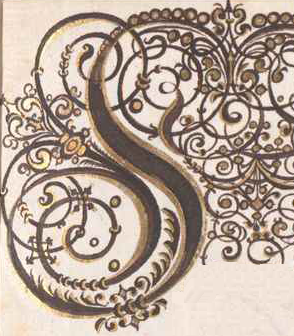Game of Themes | Improvisation competitions
Competitions in the past
Improvisers competed all the time. Sometimes an emperor organised it (Mozart and Clementi), sometimes a nobleman (Beethoven and Steibelt), sometimes a musician him- or herself would challenge another (Bach and Marchand) and organists had to compete with each other to get a job, which always included some improvisations.
Competitions in the present
Why compete?
Today you are hearing several different competitions which were inspired by the past. Not all of them have to be judged of course, but we feel that the idea of the competitive element gives us another kind of energy.
So often in classical music musicians are very polite to each other: we ‘play together’. If someone needs some more time we wait, we try not to stick out too much and help each other in whatever way possible.
In trying to compete the music and the musicians become more active. In getting themes and ideas from the audience, the audience, we hope, is more connected to the music and has a share in the experience of its coming to life.
Which inspiration?
-Bergamasca
Our first improvisation is grounded in a small collection of musical chords, called the “Bergamasca”. In fact it has many different names, one of which is ‘full cadence’, which is basically a full stop in a sentence. One might say, this musical building block is the shortest sentence you could compose, speak or improvise.
It is therefore also at the basis of most music we listen to today (after 1550).
This first improvisation takes its inspiration from many composed versions of this music and from the idea that a couple of musicians might just find each other in a café after a concert and start playing together. “Let’s start with the Bergamasca, it’s easy!” And off they go, playing with each other, against each other: having a good time.
-A Marche by Grétry
A rather well-documented competition is the one between Mozart and Clementi. Both musicians’ music is still played today, although nowadays one of them definitely eclipsed the other in terms of playing time and fame.
At the time, Clementi was also a well-respected musician. The emperor of the Habsburg empire invited both musicians to compete. The piece by Grétry we are improvising on today was used as a theme given just moments before the competition for the musicians to show their skill of variation.
In this case The Scroll Ensemble takes on guest Bert Mooiman, without pretending to be either musician and leaving choosing favourites up to you.
-Inventions
Bach wrote his inventions as an inspiration for his students and sons. Part of the idea was to teach how to use a single idea and use it so well that it could be used for an entire composition.
Like the modern-day paperclip exercise, it asks of the improviser to think of a musical paperclip and as many uses for it as possible. Sometimes one can take just the end of it, sometimes it could be very big, or a different colour or material altogether.
To make this more exciting, we decided to take another historical idea: twigs.
Johann Matthesson, a famous theorician of the time, describes the problem of not having an idea, a paperclip, to start with. In this case you could roam into the woods, find some twigs, and let their shape inspire you for a new starting point (paperclip).
The competition in this case is quite literally about the team which can use the paperclip to make the most interesting improvisation; hopefully leading to two unique pieces of music, too different to really attribute the quality of best or worst to.
-Bards
Maybe at first music was just birds and the singing of the wind. How humans started making music is difficult to say, but for sure, from the earliest records we have, we know we sang. Singing was part of the way of life, part of the rituals, the working songs, the oral history…
Skipping ahead a bit, we know that at the Olympic games there were not only Sportive competitions, but also musical.
In this next part we try to win you over with a very difficult feat: we will improvise a story with your suggestion, improvise some sung elements to it as well and accompany ourselves. This is a practice which almost died out now, but was also used competitively with the Welsh Bards.
-Card Game
In the 17th Century also emperors wanted to be able to compose. But not everybody had time, or the wit, to learn how to do this. Therefore, someone invented a machine with which you could use cards to compose a new 4-part piece of music. It had many options and could be seen as an early computer!
We will use this idea by giving you the cards and us the task to translate your ideas into real music in real time!
-Folìa
Finally you hear La Folia, one of the most famous building stones to improvise and compose on. Many compositions exist and we add a new improvisation to the list today.
Competitions in the future
We hope that you like the direction we are taking: finding inspiration from the past, whilst making innovative programmes and trying to make the concert a space where musicians, music and the audience really meet and exchange.
Support us already for a euro a month and you have funded 1/4th of our website! More information through robert@thescrollensemble.com
